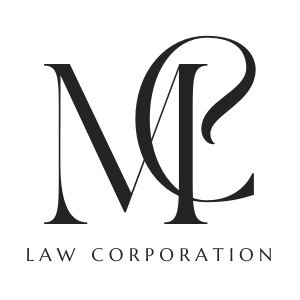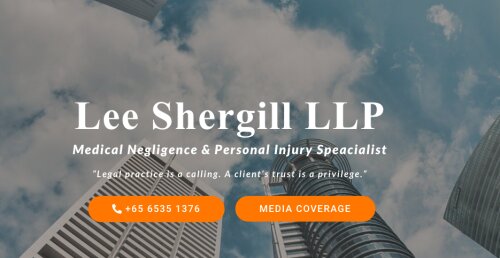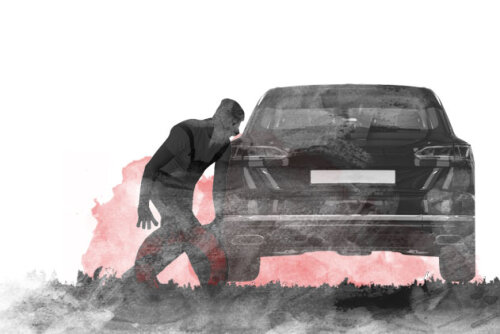Best Wrongful Death Lawyers in Singapore
Share your needs with us, get contacted by law firms.
Free. Takes 2 min.
Or refine your search by selecting a city:
List of the best lawyers in Singapore
About Wrongful Death Law in Singapore
Wrongful death in Singapore refers to a death caused by the negligence or misconduct of another entity or individual. It is a civil action brought by the surviving family members or beneficiaries of the deceased. The aim is to provide compensation to the loved ones left behind for the financial and emotional loss they have suffered. Wrongful death cases often involve complex legal proceedings and require establishing fault and damages through evidence and legal advocacy.
Why You May Need a Lawyer
Engaging a lawyer in wrongful death cases is crucial for several reasons. First, they can help determine whether your case qualifies as wrongful death under the law. Second, they possess the expertise to navigate the legal system, which can be overwhelming for the layperson. Lastly, they play a pivotal role in negotiating settlements or representing your interests in court to secure fair compensation. Situations that often necessitate legal help include fatal road accidents, workplace incidents, medical malpractice, or accidents caused by faulty products.
Local Laws Overview
In Singapore, the Civil Law Act (Chapter 43) governs wrongful death claims. The act provides provisions for claims under dependency, loss of estate, and bereavement damages. Claims must typically be made within three years from the date of death. The individuals eligible to make a claim include the spouse, children, and parents of the deceased. The compensation awarded can cover loss of financial support, funeral expenses, and other pertinent damages.
Frequently Asked Questions
What constitutes a wrongful death claim in Singapore?
A wrongful death claim arises when an individual's death is caused by the wrongful act, neglect, or default of another person or entity, and this act could have entitled the deceased to a personal injury claim had they survived.
Who can file a wrongful death claim?
The deceased's spouse, children, parents, or the appointed executor or administrator of the estate are typically eligible to file a wrongful death claim.
What compensation is available in a wrongful death suit?
Compensation may include dependency claims for financial losses, bereavement damages, funeral expenses, and loss of inheritance among others.
How long do I have to file a wrongful death claim?
Claims should generally be filed within three years from the date of death, although specific circumstances may allow for exceptions.
How are settlements determined?
Settlements are determined based on factors such as the deceased's income, potential future earnings, the contribution to dependents, and the details surrounding the incident.
What if the deceased was partially at fault?
If the deceased was partly responsible for the accident, the compensation might be reduced in accordance with the proportion of fault attributed to them, a concept known as contributory negligence.
Can wrongful death claims be settled out of court?
Yes, many wrongful death claims are settled out of court through negotiations between the parties involved and their insurers.
Is there a difference between civil and criminal cases in wrongful death?
Yes, a wrongful death claim is a civil case seeking compensation for loss, whereas a criminal case is pursued by the state to punish the wrongdoing.
Can I handle a wrongful death claim without a lawyer?
While technically possible, it is not advisable due to the complexities involved and the need for legal expertise to ensure fair compensation.
What role does the court play in wrongful death claims?
The court assesses disputes, determines liability, and calculates compensation if the case is not settled out of court, ensuring justice and equity in the proceedings.
Additional Resources
Individuals seeking further information or help can contact the following bodies:
- The Law Society of Singapore, which provides a list of qualified lawyers specializing in wrongful death.
- The Ministry of Law in Singapore for information on legal aid and advice.
- Consumer or advocacy groups that specialize in particular types of wrongful death, such as road safety organizations.
Next Steps
If you require legal assistance in a wrongful death case, consider the following steps:
- Gather all relevant documents related to the incident such as medical reports, police reports, and any correspondence.
- Consult with a wrongful death lawyer who can evaluate your case and advise on the best course of action.
- Determine your eligibility to file a claim and understand the potential outcomes and compensation.
- Consider alternative dispute resolutions, like mediation, before deciding to head to trial.
- File your claim within the legal timeframe to ensure compliance with statutory requirements.
Lawzana helps you find the best lawyers and law firms in Singapore through a curated and pre-screened list of qualified legal professionals. Our platform offers rankings and detailed profiles of attorneys and law firms, allowing you to compare based on practice areas, including Wrongful Death, experience, and client feedback.
Each profile includes a description of the firm's areas of practice, client reviews, team members and partners, year of establishment, spoken languages, office locations, contact information, social media presence, and any published articles or resources. Most firms on our platform speak English and are experienced in both local and international legal matters.
Get a quote from top-rated law firms in Singapore — quickly, securely, and without unnecessary hassle.
Disclaimer:
The information provided on this page is for general informational purposes only and does not constitute legal advice. While we strive to ensure the accuracy and relevance of the content, legal information may change over time, and interpretations of the law can vary. You should always consult with a qualified legal professional for advice specific to your situation.
We disclaim all liability for actions taken or not taken based on the content of this page. If you believe any information is incorrect or outdated, please contact us, and we will review and update it where appropriate.
Browse wrongful death law firms by city in Singapore
Refine your search by selecting a city.














